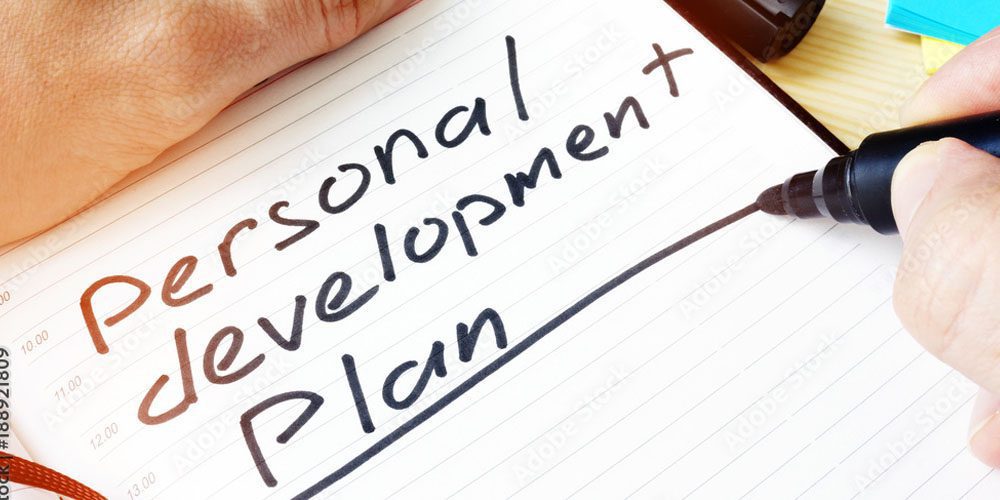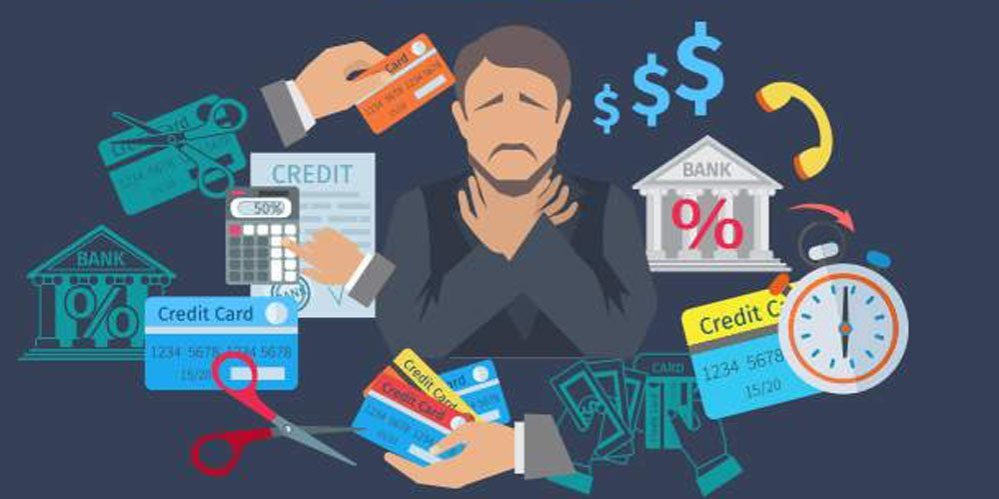Personal growth and development is becoming a priority for people everywhere. It's no longer just about acquiring new skills, it's about developing them over time – and that's where a personal development plan comes in. By outlining goals and setting expectations, a personal development plan can give you the structure and guidance to achieve greater things and create a more fulfilling life.
It's impossible to go through life without encountering some kind of difficulty or challenge. An important part of personal development is learning how to overcome these obstacles in order to reach our goals and experience the successes we desire. Whether it’s dealing with difficult decisions, managing stressful situations or finding ways to take advantage of opportunities, creating an effective plan can be your guide.
Personal development plans help us understand our strengths and weaknesses, identify areas where we need improvement, prioritize our goals and develop meaningful strategies that will ensure success over time. A well-crafted plan can act as a roadmap showing us exactly what steps are required in order to get from one point to another. It also ensures that we stay focused on our desired end results and keeps us motivated when faced with challenges along the way.
No two people are alike; everyone has their own unique set of needs, desires, goals and aspirations so having a plan tailored specifically for you will help you reach unprecedented levels of success on your path to self-improvement. When we focus on improving ourselves mentally, emotionally and physically we not only become better individuals but also better citizens as well as family members, friends and colleagues who add value to every sphere of life they come into contact with.
Creating a personal development plan involves looking at yourself honestly in order to identify areas that need work as well as recognizing things that you excel at. It’s important to remember that change is not always easy – but the rewards can be great if you stick with it! In this article let’s explore why personal development plans are so vital for achieving success in all areas of life – both professionally and personally – as well as understanding how best to go about creating one tailor-made for your wants and needs.
Definition of personal development plans and why it's important
A personal development plan is a document that outlines the steps and strategies you can use to help reach your goals. It’s more than just setting short-term and long-term goals. It’s about taking control of your life, understanding yourself better and developing skills that will help you move toward achieving those goals.
At its core, a personal development plan is a tool used to identify areas in your life that need improvement as well as provide guidance on how to go about doing this. Whether it's improving physical health, expanding professional knowledge or developing emotional well-being – such plans are customized to meet your individual needs and provide the tools for success.
Another major advantage of having one is the clarity it provides in decision-making, allowing for informed choices without the risk of impulsive behavior which can have unwanted consequences. A personal development plan is also useful for assessing progress and avoiding distractions from reaching your desired outcomes.
Overall, having a personal development plan helps increase focus, awareness and discipline – all key components needed to make effective decisions that lead to positive change both in professional and personal settings.
When developing such a plan, it’s important to come up with measurable objectives based on your individual situation and needs. Working on tangible objectives encourages you to take actionable steps toward achieving them – an invaluable skill in itself. Writing out these goals allows us to visualize not only what we want but also how we can get there. This increases motivation by reminding ourselves regularly what we are aiming for and seeing our progress along the way.
What is Included in a Personal Development Plan?
A personal development plan is a statement of where you are now, and where you want to be in the future. It is a roadmap that takes into account your career goals, training, life aspirations and any other factors that help to shape an individual’s life.
The plan outlines your particular strengths and weaknesses, allowing you to create strategies to address each one. This may include short-term goals as well as long-term ones such as acquiring new skills or qualifications. When it comes to developing yourself professionally, having a personal development plan will help you reach those objectives faster and more effectively.
Creating an effective personal development plan includes setting out your goals, objectives, and strategies for achieving them. Your goals should be specific, measurable and achievable – something that is realistic for you to achieve given the time frame. Objectives are then set to break down each goal into achievable chunks so that it's easier for you to work toward them. Strategies should be identified on how best to accomplish these objectives – such as enrolling in courses or seeking out mentors who can offer advice or guidance in areas of expertise.
In order to ensure success with your plan, it's important to identify any existing skills or habits that need improvement before taking action steps towards providing solutions for them. Skills like networking, decision making and communication all need to be improved upon if they don't already exist at a proficient level! Assigning responsibilities will also allow tasks to be completed quicker by delegating tasks or outsourcing whenever necessary.
Goals, Objectives & Strategies
Goals, objectives and strategies form the foundation of any personal development plan. Goals are something that you want to achieve in the future and provide a clear direction for your efforts. Objectives are smaller goals that you can work towards to help you get closer to achieving your overall aim. Strategies are tactics used to reach those goals, such as taking a course or getting advice from an expert.
When setting goals it's important to make them SMART: Specific, Measurable, Attainable, Relevant and Timely. This will ensure they are achievable and tangible within a given timeframe – allowing for measurable progress along the way.
Once these have been determined, creating objectives is the next step. Objectives should be broken down into measurable chunks so they can be addressed one by one without feeling overwhelmed with the task ahead. Setting out each goal in manageable steps makes it easier to track progress and make necessary changes when needed.
Finally, strategies should be identified on how best to accomplish these objectives – such as enrolling in courses or seeking out mentors who can offer advice or guidance in areas of expertise. These may vary depending on individual needs but should still be tailored according to timeframes and the budget available for each phase of development.
Overall, having well-thought-out goals, objectives and strategies form the basis of any successful personal development plan – all of which should be set with clear target dates for assessment points within the timeline provided. Not only this but tracking progress allows us to celebrate wins no matter how small – leading to more engaging and rewarding experiences throughout our journey toward success.
Skills & Habits to be Improved
When working on your personal development plan, one of the most important steps is to assess any existing skills and habits that need to be improved upon. If you don't have the necessary skills or knowledge to reach your desired outcome, then it's important to identify these in order to create strategies for addressing them.
These may include anything from networking, decision making and communication to problem-solving, time management and self-awareness – all of which are essential when it comes to achieving success in many aspects of life. In order to progress professionally and personally, it's important to improve our abilities in these areas by taking specific steps toward increasing competency levels.
Making an effort to expand your knowledge base through courses or further education can help you start building necessary employability skills as well as enhancing expertise in certain areas. Seeking advice from industry professionals and mentors who already possess the experience and qualifications you aspire towards can provide invaluable guidance along the way.
It’s equally as important when assessing skills and habits that you're aware of your own weaknesses. Learning how to better manage emotions such as stress or anxiety can go a long way in reaching goals with greater efficiency – allowing you more clarity at times when decisions need to be made. You must also take into account the physical aspect of personal development. Regular exercise helps you stay physically active but more importantly maintain a healthy state of mind, giving you a clearer sense of purpose in both your professional and personal life.
Identifying key stakeholders involved throughout each phase of development will help ensure accountability as well as provide a network for support. Knowing where help can be found if needed gives you confidence that you have backup plans should any issues arise along the journey. By developing yourself with thought-out goals, objectives and strategies while being aware of your weak points, you can give yourself every opportunity for success when embarking on a personal development plan.
Action Steps & Responsibility Assignments
Once you have established your goals, objectives and strategies for personal development, the next step is to create action steps and responsibility assignments. This will help ensure that milestones are met along the way – allowing for progress to be made within a given timeframe.
Breaking large tasks into smaller ones makes it easier to track progress and set realistic expectations on target dates which should be focused on with complete commitment. To avoid feeling overwhelmed by the task ahead, try and stay focused on one goal at a time – this way, each action taken will be part of an overall plan towards success!
As part of your personal development plan, assign essential resources such as finances, people or other tools needed to complete tasks effectively. Responsibility also helps us remain accountable for our own efforts – motivating us to stay consistent with activities assigned, even when there are obstacles in our way! Knowing who’s responsible for what can help make sure everyone is on the same page throughout each stage of development.
Another important factor when assigning roles within a project is ensuring that tasks correlate with the strengths or skills needed for completing those jobs successfully. Asking for input from colleagues or stakeholders involved in each phase of development will also help ensure collective accountability during periods when outside resources are necessary.
How to Create an Effective Plan?
Creating an effective plan for personal development can often seem daunting, but it is achievable by breaking down the task into small manageable steps. Having a well-thought-out strategy to follow ensures that progress can be made in an orderly and efficient manner, helping you to work towards your goals and achieve success with greater clarity and focus.
Step 1: Assess your current situation and needs
The first step of creating an effective personal development plan is to assess your current situation and needs. This helps to form a baseline for the project, giving you an idea of where you currently stand in terms of knowledge, skills, and abilities. You should be sure to consider both your weaknesses and strengths, as well as any outside resources available to you such as money or people.
To start this process, it’s important to think about what specific goals or objectives you hope to achieve with your own development plan. Considering different ideas that have worked for other successful individuals in the past can help steer you in the right direction. For example, if one of your goals is to become better at public speaking – look for examples of prominent figures who have reached success through honing their public speaking skills such as Presidents or business executives.
Take notes on what topics they discuss during speeches and how they handle certain situations during their presentations. Not only will this give you a clear understanding of what works best when presenting yourself or a product/service in front of others, but also gives insight into where you might focus your efforts when preparing a talk.
It’s also important at this step to be honest with yourself regarding your own skill set; referencing past work experiences or feedback from colleagues that may have not gone so well can help identify weak spots and turn them into strengths by forming action steps such as taking courses on certain topics like sales or marketing techniques. Once these areas have been identified and addressed appropriately – you’ll be much better equipped for success.
Step 2: Set Goals and Outline Objectives
Step 2 of creating an effective personal development plan is to set goals and outline objectives. Having a clear vision of what you want to achieve is essential in order to drive your motivation and stay on track. Whether it’s completing a certain number of tasks within a specific time frame or mastering a particular skill, it's important to be realistic and set achievable goals.
When setting these goals, it’s important to consider your current skillset as well as all the resources available. For example, if you have limited funds or haven’t taken any courses that might be beneficial for the task at hand –you may need to adjust your expectations accordingly. It can also be helpful to identify an overall long-term goal that encompasses multiple smaller milestones – this will help ensure progress is being made toward the ultimate achievement while providing positive reinforcement along the way.
In addition to outlining your own personal individual goals, you should also consider the resources required in order to meet those objectives. Writing down each step of the process gives a clearer perspective on how much effort is involved, allowing you to prepare appropriately before diving headfirst into any project. This also helps with staying organized by knowing what tasks come first so that energy isn’t spent overthinking which direction to go next.
Step 3: Establish Milestones and Strategies
Step 3 of creating an effective personal development plan is to establish milestones and strategies. Creating achievable goals is important – but they mean nothing if you don’t have the proper plan in place to make them a reality. This means taking into account all the resources available, setting deadlines, and breaking down overall tasks into smaller chunks.
Using incremental milestones within each step of the project can help track progress and keep you on schedule for completion as well as measure success along the way. It's important to be realistic about what can be achieved and when it will be complete; for instance, if you are learning a new skill such as coding or public speaking – set deadlines that allow sufficient time for practice without being overly ambitious.
Developing strategies for each stage of the process helps to work smarter, not harder by making sure the most efficient methods are being used at every opportunity. For example, if you’re working on a project with multiple individuals it can be helpful to utilize task management systems like Trello or Asana which simplify communication between team members and promote better collaboration.
Leveraging technology platforms like digital calendars or scheduling/billing software can help stay organized as well as quickly delegate tasks and invoice clients respectively.
Step 4: Develop Your Action Plan with Timeframes
Once the goals and strategies have been established, it's time to get down to business and create an action plan complete with deadlines for each milestone. The key here is balance; setting deadlines that are realistic within the scope of what you want to accomplish without sacrificing progress due to unrealistic expectations. Additionally, breaking down big projects into smaller tasks helps to stay focused on the task at hand as well as prevent feeling overwhelmed by too much work.
When developing your action plan, it’s important to consider several factors such as resources available, time constraints, and any external pressures such as clients or deadlines. It can also be helpful to use visuals like timelines or flow charts which allow you to visualize the entire process from beginning to end – keeping everyone on track with progress updates along the way.
Time management also plays a critical role in staying motivated and organized when completing any long-term project. Scheduling out specific periods for each task ensures everything gets done efficiently and keeps distractions at bay while allowing enough flexibility for unexpected circumstances that may arise throughout the process. Finally, don't forget that the results of accomplishing goals will only be seen after a considerable amount of time has passed – so keep in mind that short-term sacrifices usually yield long-term rewards.
Greater Motivation To Reach Your Potential
Working on a personal development plan can be an incredibly rewarding experience. Seeing tangible results of your efforts is incredibly satisfying and motivates you to keep pushing forward. Each success leads to more and more successes as mastering one skill provides a foundation for the next – thus, increasing your confidence and capabilities with each step taken.
Dreaming big is part of this process as having high but achievable goals keep you focused on what’s possible. This motivation then drives the decision-making process and encourages you to take risks that may ultimately lead to greater rewards in the long run. All of these things together give us the ambition needed to push ourselves beyond our perceived limits and reach heights we never imagined!
It is important to remember that while achieving success may come easily at times, it doesn't always last forever – so résilience is key. Obstacles will inevitably come up along the way but having a good attitude coupled with determination and perseverance can often help overcome these setbacks. It's also important to realize that failure isn't necessarily bad as long as lessons are being learned; every mistake made can turn into an opportunity for growth if viewed with an open mind!
Motivation isn't just found in moments of accomplishment; it's also found within yourself in those moments when you feel like giving up or don't have enough strength left inside you. Remember that if you really want something, no matter how difficult it may seem, you have all the tools necessary within yourself to make it happen – just believe in yourself and keep going even when success seems far away. The time invested will pay off eventually if you stay true to your purpose.

















